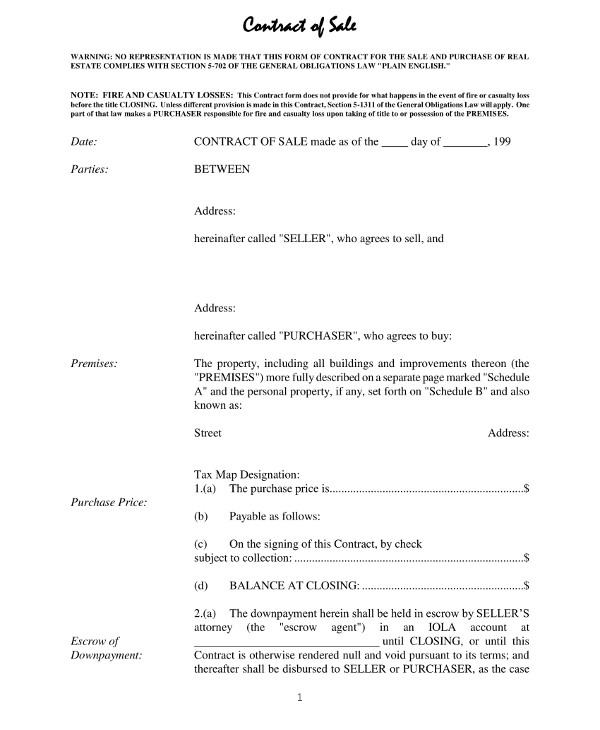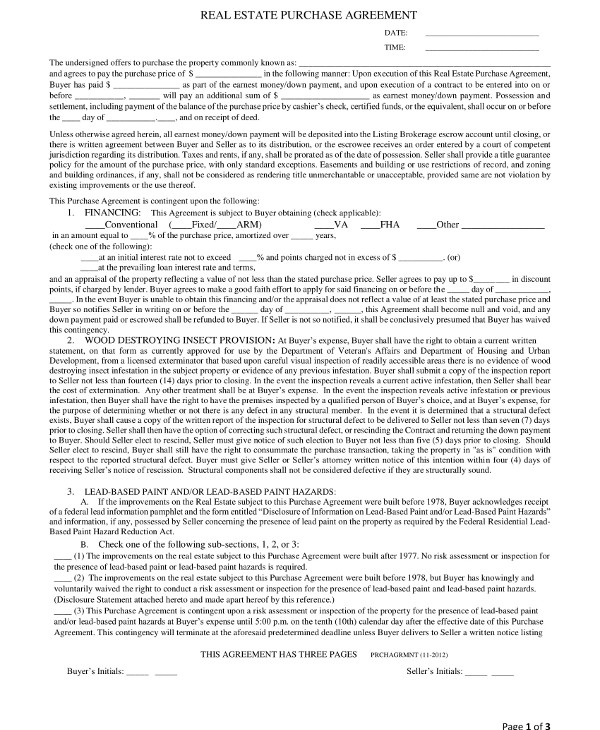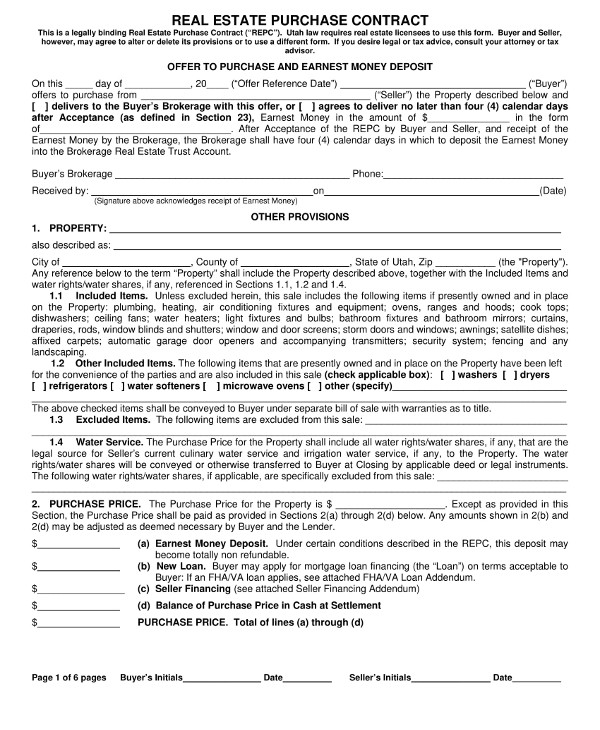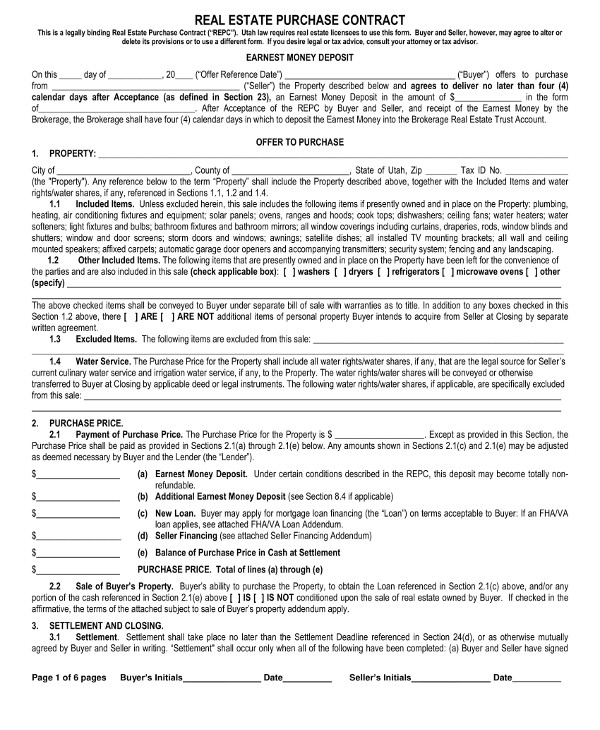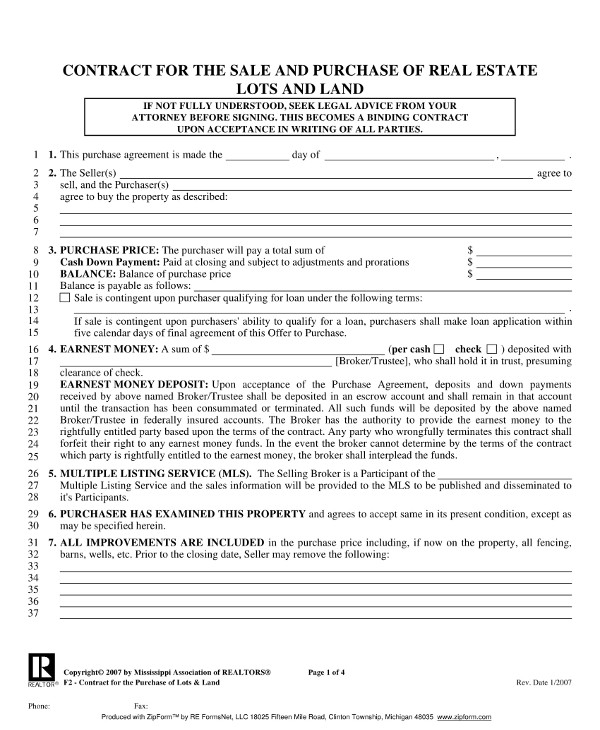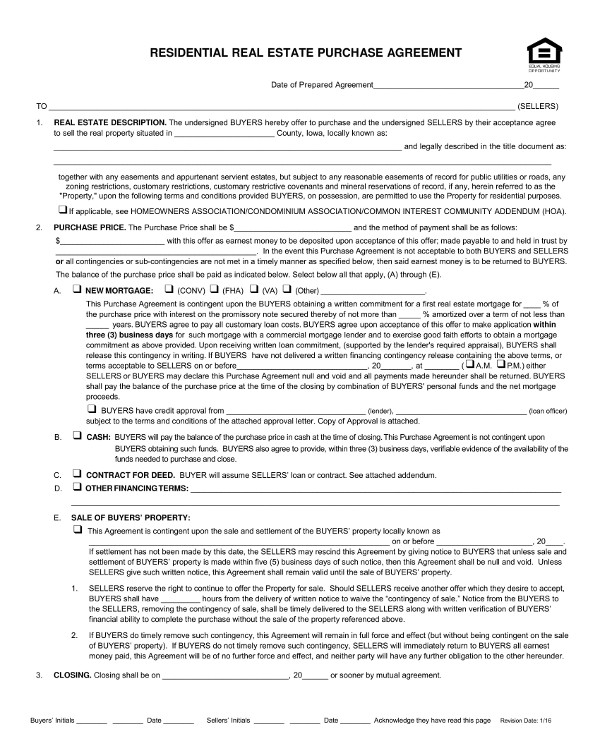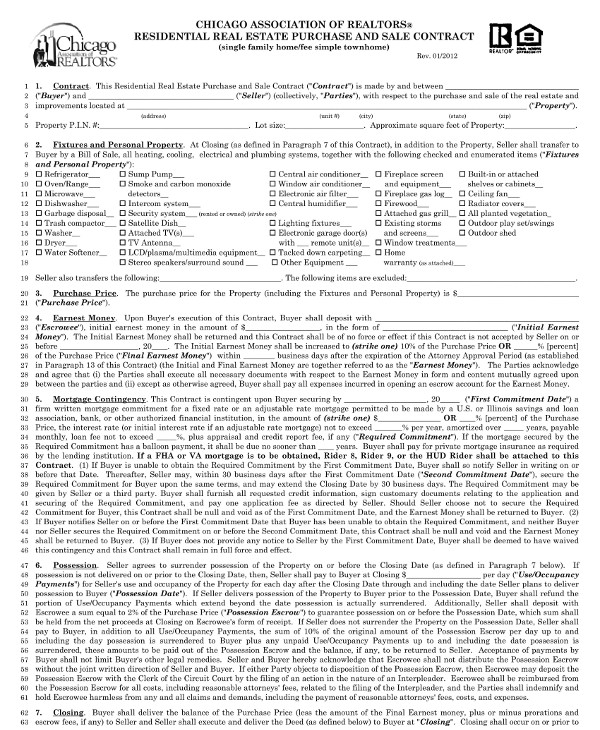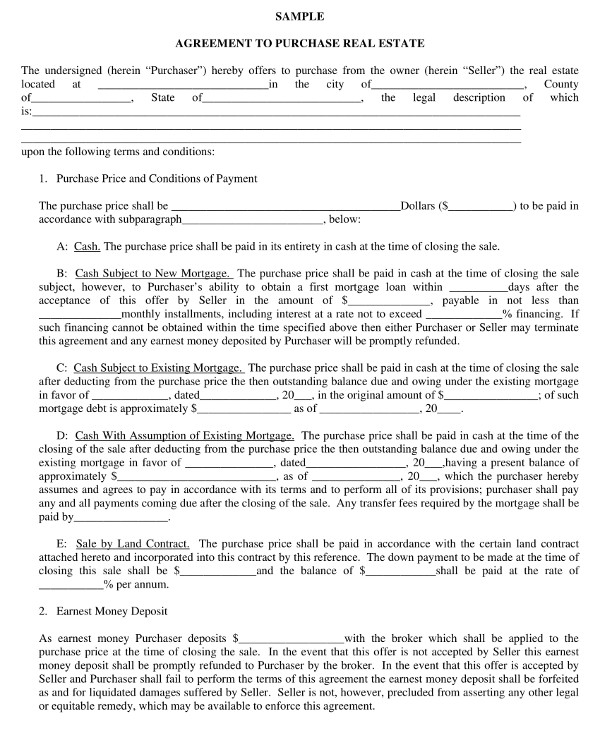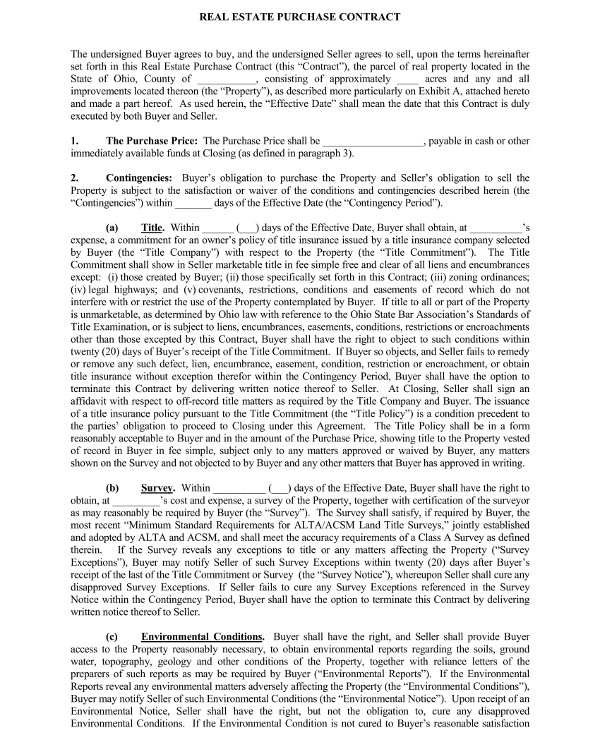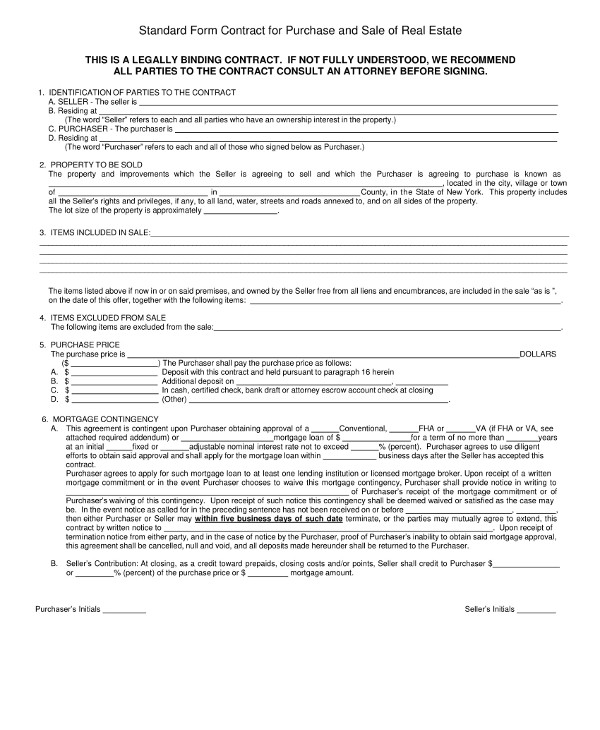13+ Real Estate Purchase Contract Examples
Purchasing a house is an exciting experience. It’s rewarding to finally see all your long hours and hard work go to an investment that you could actually benefit from for many years. After previewing a series of houses with your broker for a few months, you find a home with a property and neighborhood that suits you. Since the seller has already published an asking price, it’s time for you to make a bid on the property to let the seller know you’re interested.You may also see project contract examples
Once you and a seller agree on a price, preparing a contract should be the next step. But real estate contracts can be long, complicated documents. Thus, a correctly written contract is crucial to avoid misunderstandings and mistakes which may cost you money.You may also see yearly contract examples
Sample Real Estate Purchase Contract Template
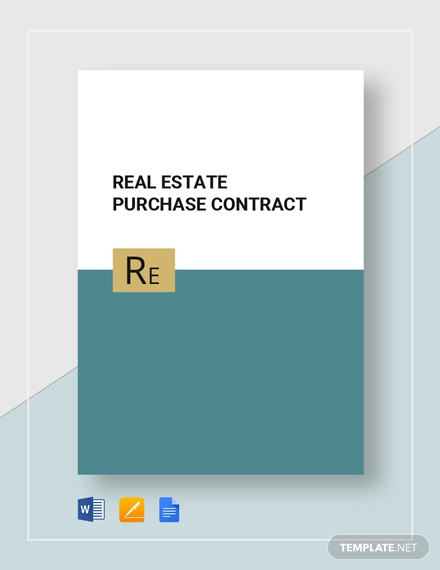
Simple Property Purchase Contract Template
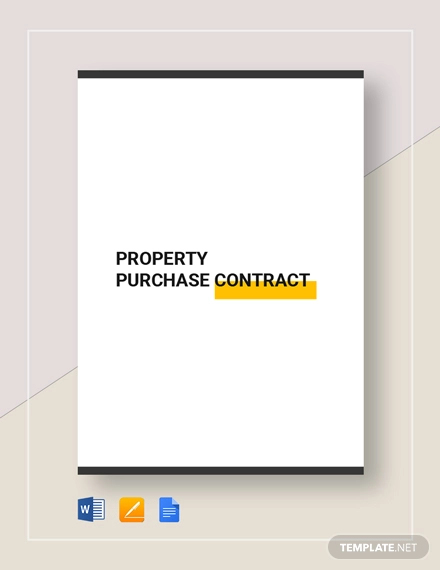
Real Estate Purchase & Sales Contract Example
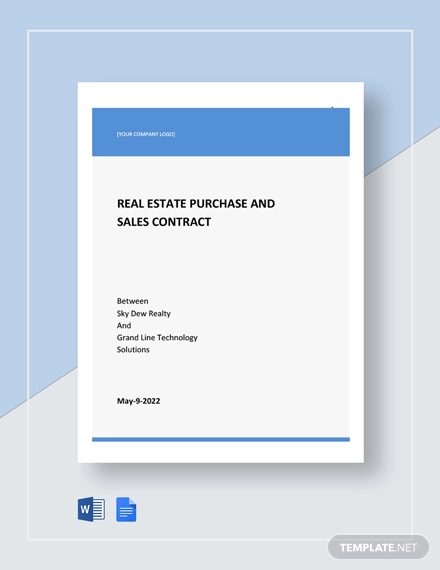
Free Commercial Real Estate Purchase Contract Example
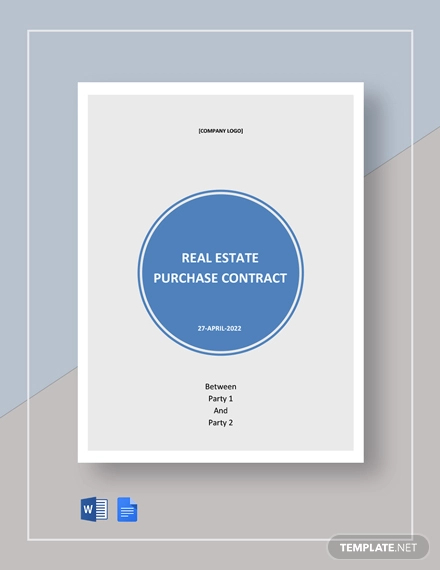
Purchase Contract for Real Estate Example
Real Estate Purchase Contract Agreement Example
Real Estate Purchase Contract Example
The Elements of a Contract
Every real estate transaction requires a contract to validate the agreement made between the parties involved. But there’s always a possibility of the document being voided by a court of law, especially in the absence of certain elements.
That being said, let’s take a look at the required elements of a legally valid real estate contract:
1. A Legal Purpose
First and foremost, the purpose of a contract should always conform to the law, which means it’s unconstitutional for parties to execute a contract to perform an illegal act. If the contract involves fraud upon another, the contract would not be permissible by any means.
And when it comes to real estate, regardless of how the contract is worded, if the seller is not the legal owner of the property in subject, it’s not going to work out the way you want it to.
2. Legally Competent Parties
Make sure the parties involved in the contract are competent to enter into an agreement. They should be of legal age and mentally competent enough at the time of entering the contract.You may also see child care contracts.
Let’s say that a 16-year-old boy inherited a prime piece of real estate from his grandmother and decides to sell it. As much as you want it, you can’t have them sign a sales contract and expect it to hold up in court, as they’re not old enough to do so. You have to consider the capacity of the seller before you make any buying decisions.
3. Agreement by Offer and Acceptance
In real estate, this agreement is illustrated when a buyer makes an offer to purchase the property and the seller accepts it. In some instances, this is portrayed through a handshake or a verbal exchange. But because a lot is at stake when it comes to real estate, using a written contract to seal the deal is highly recommended.You may also see agent contract examples
That way, a buyer can offer a price with contingencies and the seller can accept it with contingencies.
4. Consideration
Consideration refers to anything that is of legal value that is either offered or exchanged in the contract. While money might seem like an obvious consideration, other examples of consideration in a contract include services, goods, and even love and affection. This must be stated clearly in the contract for both parties to grasp.
Money is the usual consideration in most of today’s real estate deals. It doesn’t have to be cash, as financing is often involved as well. Although earnest money does move with the agreement, the down payment and financing is essential in closing.You may also see investment contract examples
5. Consent
Consent is a critical element for any binding agreement. Parties to the contract must willingly and knowingly agree to the terms stated in the contract for it to be accepted by a court of law. Forcing someone to sign the contract against their free will is a definite no-no, and you’re bound to face some serious legal issues if you decide to address the situation aggressively.You may also see partnership contracts.
When Is a Contract Valid?
A contract is considered valid if it satisfies all of the elements stated above.
If so, the agreement becomes legally enforceable, which means that parties are obligated to perform their duties per the terms of the contract. But if a party fails to meet these terms accordingly, they may be required to pay for the damages as indicated in the document. In the field of real estate, this is referred to as suing for “specific performance.”
Let’s say that a buyer and a seller agree on a contract and are on their way to closing. But not long after, another buyer approaches the seller to offer an amount higher than that of the previous buyer, which entices the seller enough to back out of the deal. There isn’t any contingency or clause that can allow that without a problem, but the seller is persistent and refuses to close.You may also see You may also see hiring contract examples
When this happens, the buyer can bring the case to court and force the seller to offer them the property as agreed. Unfortunately, most judges usually settle issues like this by simply awarding a particular monetary restitution from the seller to the buyer.
Real Estate Purchase Contract Template
Real Estate Sale and Purchase Contract Example
Residential Real Estate Purchase Contract Agreement Example
Residential Real Estate Purchase Contract Example
What Is a Real Estate Purchase Contract?
A real estate purchase contract is a binding, bilateral agreement between two or more parties who possess the legal capacity to make a purchase or exchange of the property in question. In most regions, the terms stated in the agreement may only be enforceable if a written contract was signed by both the buyer and the seller.
If you still think handshakes are enough to give you the go signal, you’re putting a lot at risk here. The primary purpose of a real estate agreement is to clearly express the terms and conditions of the sale for the parties involved to comprehend.
1. Content
Though most contracts can vary greatly in complexity, a typical real estate purchase contract should include the following provisions:
- Names of the parties involved – Identify the purchasing and selling parties. Even if one of those parties is a corporate entity, they still need to be specified in your contract.
- All dates involved – Be sure to provide specific details as to when the offer is extended, when it expires, and when it would take place should it be accepted.You may also see payment contract
- Legal description of the property – Beyond its address, you have to describe the property in terms of land parcels. This is typically generated from the county recorder’s office for accuracy.
- Offering price for the property – The contract must declare the exact purchase price of the property or a reasonably fixed figure.You may also see employment contract examples.
- Signatures – For it to be deemed enforceable, the contract must be understood and signed by the said parties. Signatories must also be of legal age with a sound mind. If a business entity is involved, an authorized representative should sign on behalf of the company.You may also see business contract examples.
2. Can a Real Estate Purchase Contract Be cancelled?
It’s not unusual for a buyer to want out of a contract. Whatever your reason may be, as a buyer, you need to act appropriately. Procedures for cancellation are typically outlined in the original contract. It’s much easier to withdraw from an offer if you notify the other parties when the offer is yet to be accepted. You have to be as thorough as possible to avoid any issues along the way.You may also see business management contract examples
3. In case of a dispute…
The first thing most people would want to do is to consult an attorney. But legal guidance is proven to be invaluable if you haven’t navigated other waters just yet. Legal disputes are often settled by litigation, by arbitration, or by both parties opting for mediation to avoid further problems. Since every situation is unique, you may want to test out different options before finalizing your next move.You may also see writing contract examples.
Sample Contract Agreement to Purchase Real Estate
Simple Real Estate Purchase Contract Example
Standard Real Estate Purchase Contract Example
Real Estate Contract Mistakes to Avoid
The purchase of a real estate property is a significant financial and emotional investment for your future. It’s a serious business that involves a lot of money and a valued property. Because of this, having a written and committed agreement in the form of a real estate contract is essential in identifying all parties involved, the property in question, and the specific terms that the buyer and the seller need to agree to for the contract to be enforced.You may also see construction contract examples.
Considering the weight that these documents hold, here are some of the most common mistakes you want to avoid when writing a real estate contract:
1. Attorneys
Surprisingly, many people make the mistake of not consulting an attorney even when they have to. Everything from estate sales to short sales, and bank-owned to company-owned property sales should have a legal counsel write or review their contracts before closing a deal.You may also see janitorial service contract examples
2. Parties
Contracts are considered to be an official legal document which may be used in favor or against you. Knowing this, make sure to double-check the spelling of names along with the mailing address of each party. Do not forget to use the complete, legal name of the subjects involved. Any errors in this aspect may raise questions and concerns in the near future.
3. Property
You might have noticed how some people have home addresses that are almost similar to that of another. In addition to giving the correct address of a particular property, you must provide a legal description as well, including its Tax ID, Parcel Number, and Deed Book, just to name a few.You may also see agent contract examples
4. Relationships
It’s important to specify the relationship of each party with each licensed real estate broker involved, as well as the actual licensee representing each. These relationships may be one of the following types:
- Seller Agent – The broker along with their agents represent the seller.
- Buyer Agent – The broker along with their agents represent the buyer.
- Dual Agent – A single broker along with their agents represent both parties (buyer and seller).
- Designated Agent – The broker acts as a dual agent, but assigns certain agents to represent the buyer and the seller separately.You may also see remodelling contract examples.
- Transactional Licensee – Broker and agents work to assist with the transaction but do not act as an advocate for either party.
5. Leaving Blanks
Most contracts contain blank spaces for parties to fill in. Though it may seem tempting to leave some of these blanks empty, especially when they include a default language, you still have to be careful about leaving the contract as is. It’s important to specify the exact details for the agreement to keep everyone informed. You also have to be extremely conscious while filling in the form to avoid confusion.You may also see attendance contract examples
7. Counter Offers
It is common for buyers to provide a purchase agreement when making an offer. If the seller decides to sign the agreement without any changes, the offer is accepted. However, sellers also have the option of making a counteroffer by lining out certain items in the contract and writing their desired changes. If the buyer agrees to it, the agreement would then be signed and dated. Otherwise, the buyer could either walk away or offer a counter of their own.
It’s important to use a real estate purchase contract if you’re ready to sell a property to an interested buyer and would like to outline the sale process until the closing date, or if you wish to purchase a property and would want to enter into an official agreement with the seller in regards to the terms of the sale.You may also see moving company contract examples.
So if you’re hoping to buy a property anytime soon, remember to keep these guidelines and contract examples in mind to ensure a smooth and sound real estate transaction.



